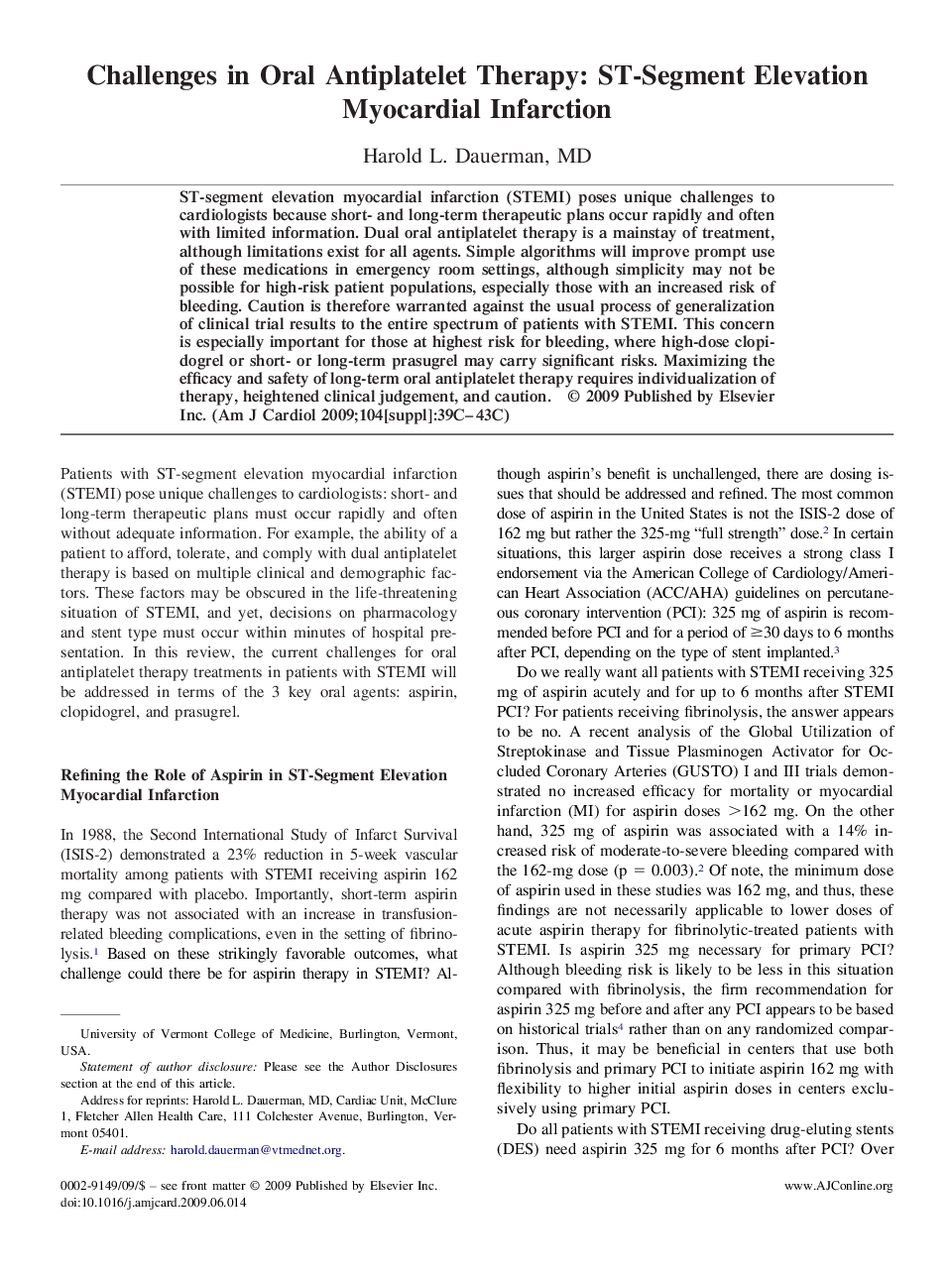| Article ID | Journal | Published Year | Pages | File Type |
|---|---|---|---|---|
| 2857754 | The American Journal of Cardiology | 2009 | 5 Pages |
ST-segment elevation myocardial infarction (STEMI) poses unique challenges to cardiologists because short- and long-term therapeutic plans occur rapidly and often with limited information. Dual oral antiplatelet therapy is a mainstay of treatment, although limitations exist for all agents. Simple algorithms will improve prompt use of these medications in emergency room settings, although simplicity may not be possible for high-risk patient populations, especially those with an increased risk of bleeding. Caution is therefore warranted against the usual process of generalization of clinical trial results to the entire spectrum of patients with STEMI. This concern is especially important for those at highest risk for bleeding, where high-dose clopidogrel or short- or long-term prasugrel may carry significant risks. Maximizing the efficacy and safety of long-term oral antiplatelet therapy requires individualization of therapy, heightened clinical judgement, and caution.
